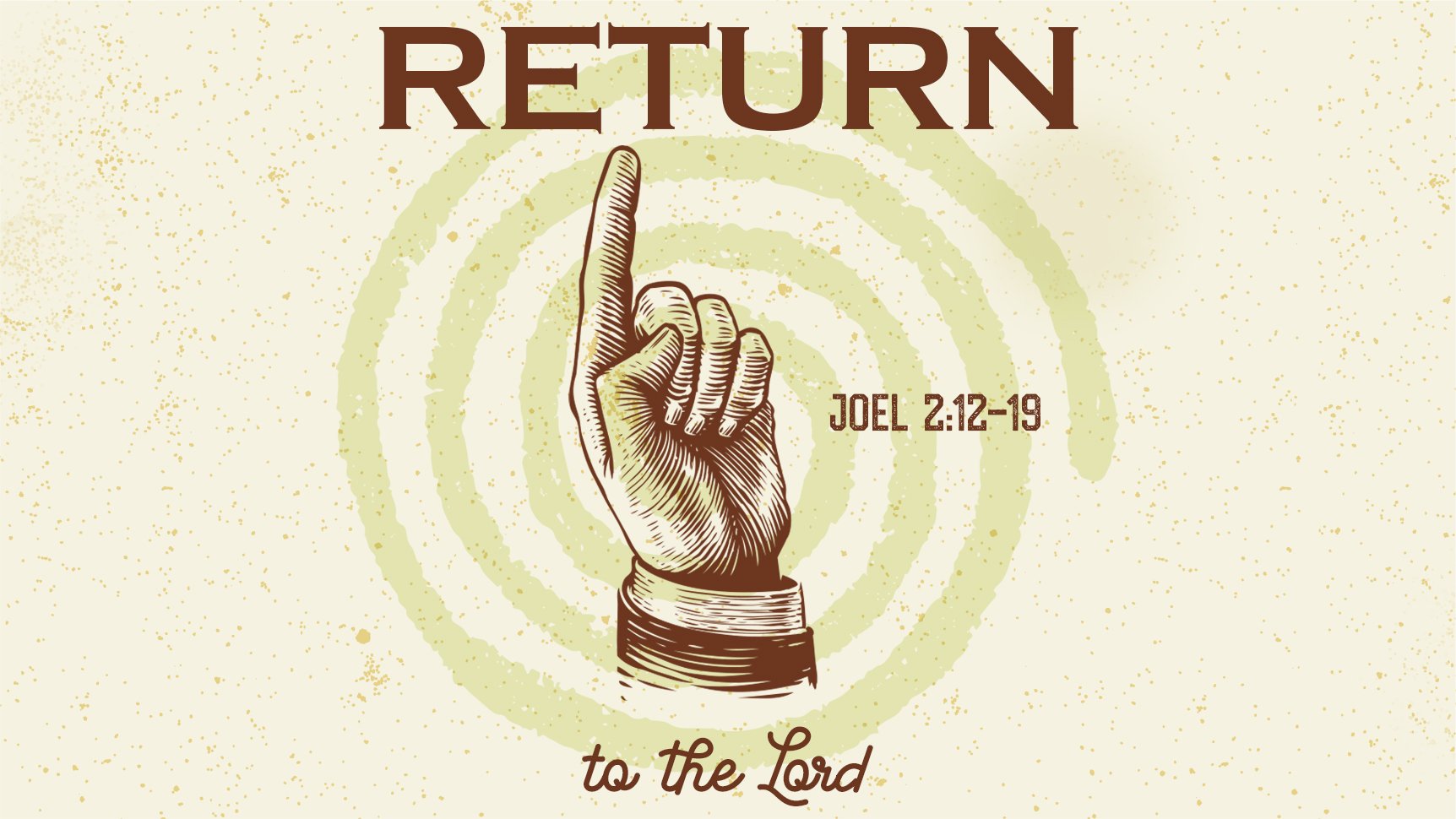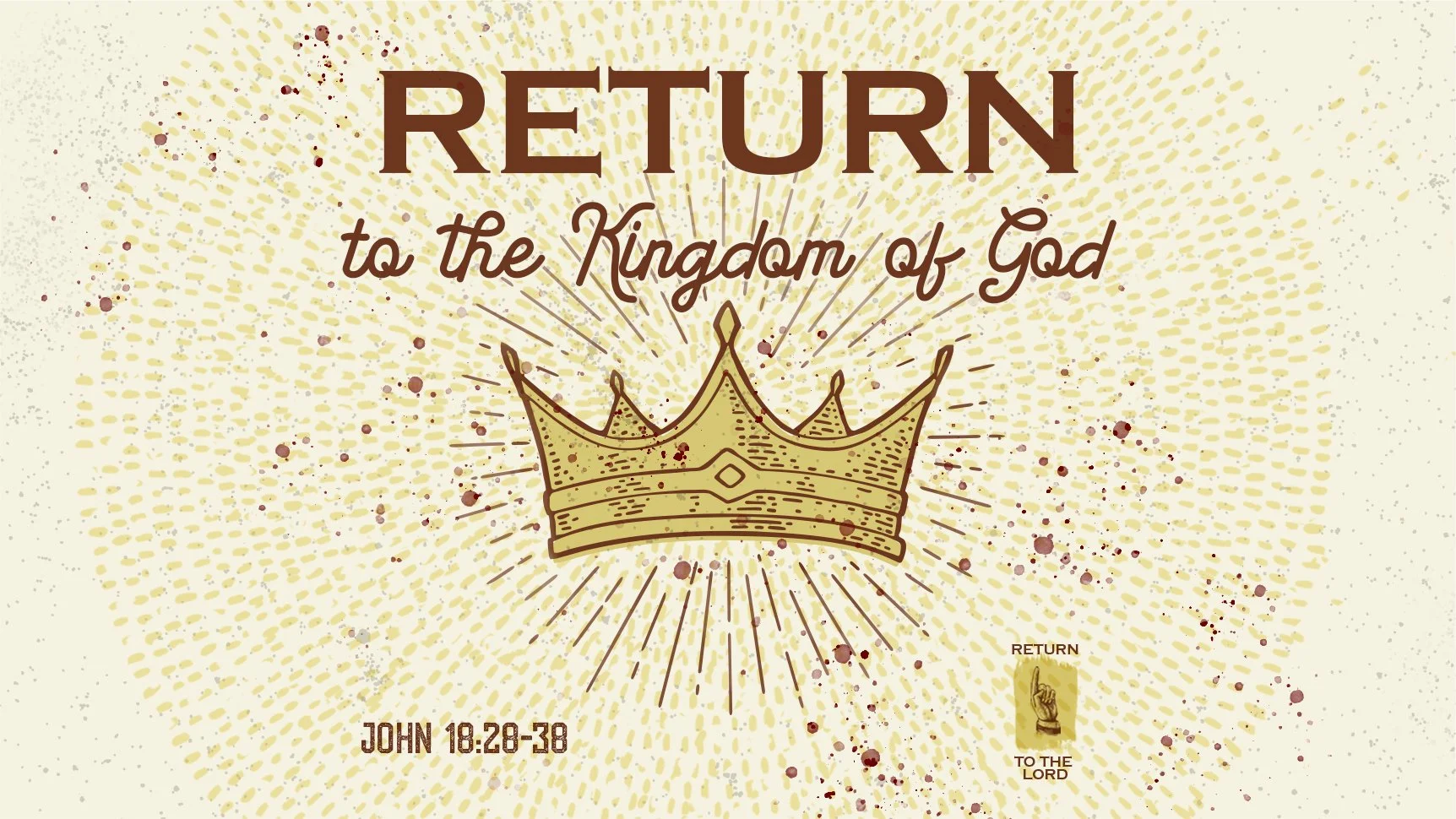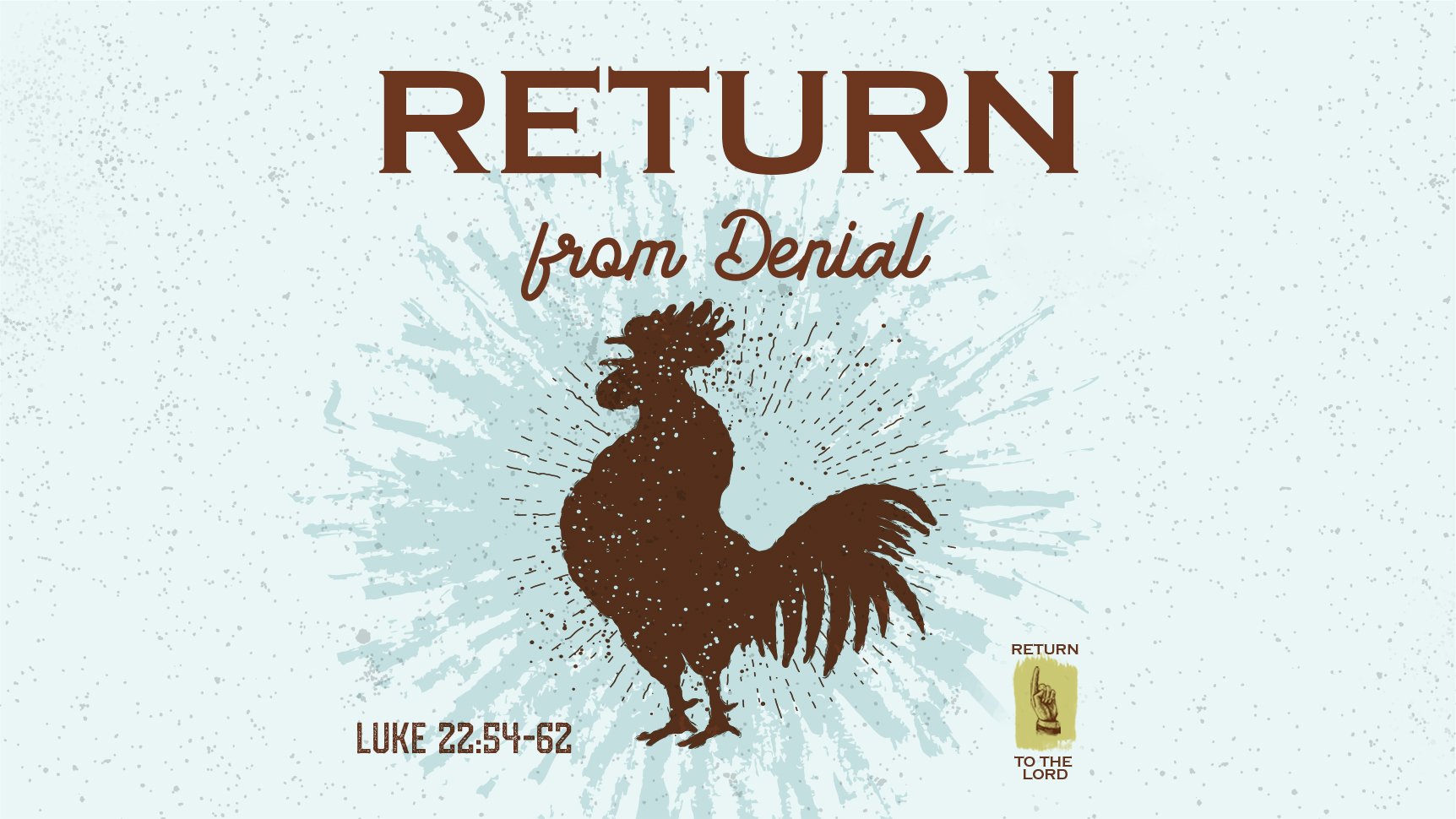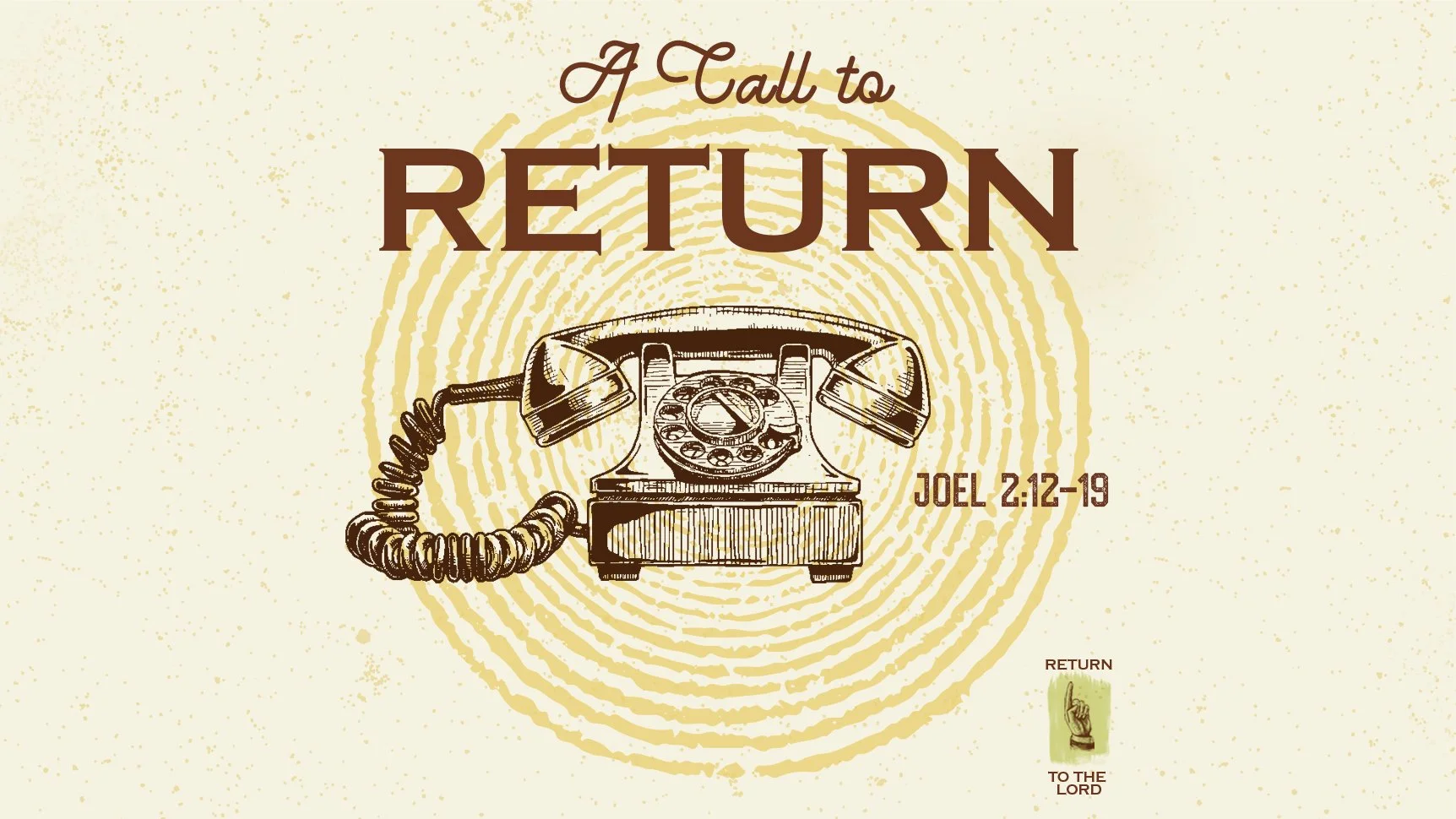Return to Prayer | Fifteenth Sunday after Pentecost | Matthew 26:36-46
“...Return to the Lord your God,
for he is gracious and merciful,
slow to anger, and abounding in steadfast love...”
September 18 | 10:45 a.m.
Fifteenth Sunday After Pentecost
READINGS
Psalm 121:1-8
Genesis 32:22-30
Romans 8:22-28
Matthew 26:36-46
message presented by Rev. Frank C. Ruffatto
+Points to ponder
- What hinders you from a robust prayer life with Christ?
- What helps you to connect with God in prayer?
- Why do you think prayer is a means by which God gifted us to connect with Him?
+Sermon Transcript
Grace, mercy, and peace be unto each of you from God our Father and our Lord and King, Jesus the Christ. Amen.
Let us pray: O almighty God, our Heavenly Father, renew in us the gifts of Your mercy, increase our faith, strengthen our hope, enlighten our understanding, enlarge our love, and make us ever ready to serve You, for the sake of Jesus, Amen.
Our text today is the Gospel you just heard from Matthew, in which Jesus and His disciples go to Gethsemane, where He prays, and they nap. Our theme is prayer, specifically God’s invitation and command to be constant in prayer. Keeping with our overall celebratory theme of returning to God, the sermon is titled “Return to Prayer.”
Now, I know that for some, prayer can be a touchy subject. Because if we’re completely honest, few of us are very good at prayer. There is always a little twinge of conscience that comes with any discussion of prayer. We have great intentions, obviously, but a Scripture passage such as Paul’s encouragement in 1 Thessalonians to “Rejoice always, pray without ceasing, give thanks in all circumstances …” can make us flinch; we tend to worry more than we should, and we certainly don’t do a very good job of praying without ceasing. And the thankfulness in all – all circumstances thing – well, you know.
“Peter Marshall, the late chaplain of the U.S. Senate, once said in a prayer, ‘O Lord, forgive us for thinking that prayer is a waste of time, and help us to see that without prayer our work is a waste of time.’”
It is a good bet that your prayer life does not measure up to the ideal that God’s Word sets up, and it probably falls short of whatever standard you set for yourself. So, if you are a little uncomfortable with this topic, that is understandable. I hope by the time we are done here you will know that when God calls you to pray, He provides the means to do so and even fulfills what you are unable to do. In much the same way that Jesus is the primary actor in your salvation, the Holy Spirit is the primary actor in your prayer life.
In the Old Testament Reading, Jacob is returning to Canaan, having been through the wringer with his father-in-law, Laban. He is nervous about fleeing with all of the people and livestock that are rightly his. He’s worried about encountering his twin brother, Esau, whom he imagines is angry about that whole stealing-the-blessing thing. Jacob’s world is kind of up in the air.
So, he has split his whole traveling company into two camps in hopes that if Esau and the four hundred men traveling with him encounter one, at least the other camp will be spared. He sends Leah and Rachel and his children and servants ahead and is left by himself for the night.
What happens next is astonishing. A man wrestles with Jacob all night long. Apparently, it was quite a match, because neither came out on top through the whole ordeal. As things unfold, we slowly begin to realize that this was no ordinary wrestling match. Jacob wasn’t wrestling just anyone; he was wrestling God Himself! More specifically, he was wrestling with God’s Son, who would later become incarnate. He was wrestling with Jesus.
This is no allegory or mere tale; the wrestling match certainly happened. And one lesson we can learn from it is that the trials and temptations that God allows us to bear are ultimately intended not to destroy us but to build us up and to bless us. Just look at the cross of Christ to see how God can use suffering to bring about good.
Having said that, you could also use this event as a metaphor for your prayer life. In a sense, you wrestle with God in your prayers. You ask for the things that you believe you need. You struggle with the prayers that are not answered as you hoped. You long for God’s clear guiding and directing, and you groan under the weight of the trials that you must endure. But in the end, through your prayers and your wrestling, God changes you. Forms you. Molds you into something more like Jesus.
Selfishly (and sinfully), we may perceive our prayers as a time of our wrestling with God, but what if it is actually a time when God is wrestling with us? A time that He uses to reorient our perspectives and our perceptions. Surprisingly, it seems that the primary actor in your prayer life is not you but God.
One of the things Jacob says to his foe is “I will not let You go unless You bless me.” This is terrific! In the context of prayer, this would be something like “I won’t stop praying until You answer me,” and it calls to mind the parable of the persistent widow. You know – the one where the widow comes before the unrighteous judge again and again and again demanding justice, and he finally gives in? The one Jesus used to emphasize how much greater the blessing is from a God who actually loves you and cares about you?
“To be a praying Christian does not simply mean to pray occasionally but to pray continually. No one can live by taking a breath only once in a while. A person cannot read by a light that flickers on and off. A ship cannot sail with only an occasional puff of wind. So also, a Christian cannot maintain spiritual life and health by praying only once in a while.”
You see, the problem is that most of us don’t come to prayer prepared to go toe-to-toe with God all night long. We don’t train to be prayer warriors, most of us, and we’re not equipped for that kind of battle. In fact, not only do we generally do a pretty poor job of being constant in prayer, but we also often aren’t even entirely sure how to pray.
We wonder: What do I say? How can I come before God and speak with any kind of eloquence? Words fail me. My emotions overwhelm me. I’m keenly aware of my shortcomings, and I don’t feel like I have any kind of credibility to ask God for anything.
We’re a lot more like Peter and James and John than we are like Jacob and Jesus: falling asleep when we should be praying, dozing off when we should be alert. We don’t know what to pray for, and we’re not even sure how to pray. And so, we don’t, or at least not as often as we probably should.
When you listened to that Gospel, I bet you could identify with Peter and the other disciples. You probably felt a little sheepish that you stumble in your prayer life in much the same way that they did. At least you don’t have Jesus in your face calling you out for your failures! But if you took that reading to heart, you may have felt like our Lord was chastising you.
Paul offers the answer, and we need to hear this: Paul says that we don’t know what to pray for. We don’t really know how to do this prayer thing, but that’s okay. Because “the Spirit Himself intercedes for us with groanings too deep for words.” And what the Spirit does, you can be sure He does perfectly.
Your prayers may falter, but the Holy Spirit makes up for it. What you cannot do, God does for you. What you are unable to do, God does with ease. Where you fail, God is perfect.
Consider then that your prayer life reflects your faith and your salvation. Because while you falter in your daily life, Jesus has stepped in and made up for it. What you could not do, Jesus did for you. What you were unable to do, Jesus fulfilled. Where you failed, Jesus was perfect.
Make the cross the focus of your prayer life. Let it comfort and soothe you as you speak your petitions to a loving God who sent His only Son to save you. Know that your failures do not define you before God; rather, Jesus’ perfection covers all of your sins, and you bear His righteousness.
God commands you to pray, but He doesn’t leave you alone with it. The command simply brings you to the foot of the cross, where you can look up and see the Gospel reality that covers your shortcomings. Know that your prayers are a means by which God is forming and molding you, and that He will intercede where you fall short. When God calls you to pray, He provides the means to do so, and He even fulfills what you are unable to do.
May that be a comfort and an encouragement as you joyfully respond to Jesus’ call to Return - “Return to Prayer.” Amen.
“May the God of hope fill you with all joy and peace in believing, so that by the power of the Holy Spirit you may abound in hope.”
ABOUT THE SERIES
In the Book of Joel, the prophet paints a vivid picture of the coming judgment of God, the Day of the Lord. The imagery is bold and terrifying. Joel’s prophecy has teeth even today as wars rage, natural disasters threaten and destroy, and our culture seems to be unraveling.
But right in the middle of this frightening portent, we find a tender invitation from the Lord: “Return to the Lord your God, for He is gracious and merciful, slow to anger, and abounding in steadfast love; and He relents over disaster” (Joel 2:13). God’s invitation and promise finds its fullness in Jesus Christ, who personifies and accomplishes all that God declares.
During this series, we will consider the theme “Return to the Lord” and examine how the call to return played out in practical ways for the people who walked alongside Christ as He demonstrated and carried out God’s grace and mercy on our behalf, taking God’s wrath upon Himself, setting the stage for God to “turn and relent, and leave a blessing behind Him” (Joel 2:14).
Join us for the Return to the Lord series at Redeemer.











